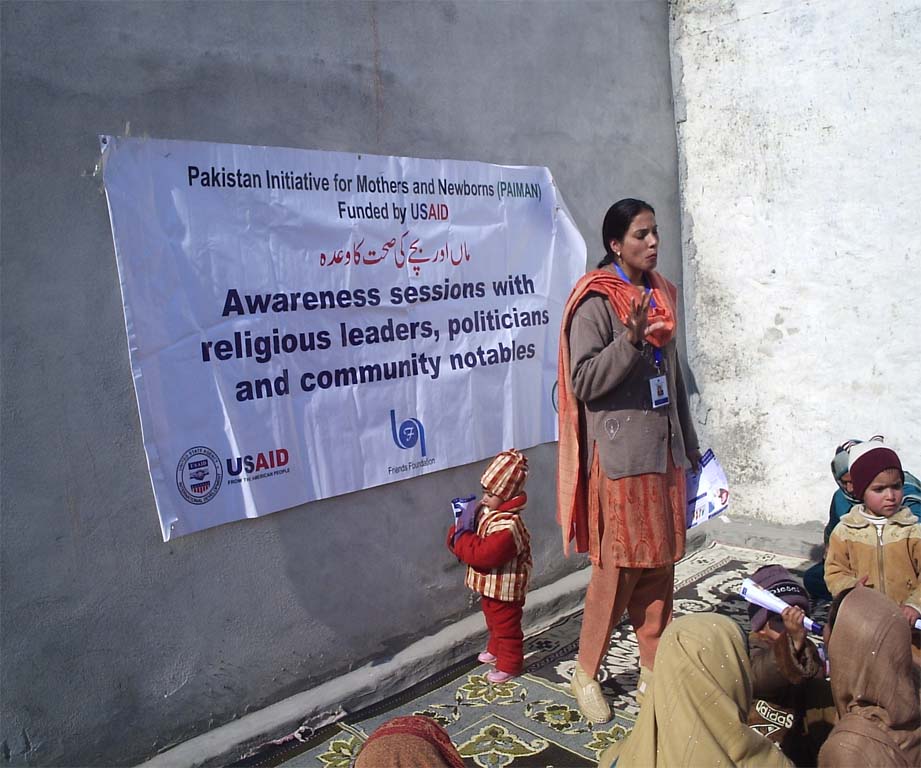Program Strategy & Principles
FF’s Understanding on Social Mobilization, Program strategy & Principles and Implementation methodology
Conventionally, the general practices have hardly taken into consideration the significance of the people's participation in development interventions. As a result, the development activities could not generate sustainable impacts on the lives of the poor. On the basis of its experiences and learning, FF has concluded an understanding that participation is an essential vehicle for the process of sustainable development and, the participation at the grassroots level is only possible if the rural poor are well organized. FF views social mobilization as a process of social organization at grassroots level. Through well-designed processes of social mobilization, FF ensures the formation and development of grassroots level organizations of the poor. These organizations are intended to be sustainable institutions having capacity to successfully plan and manage different projects for community development. FF envisions the formation of such grassroots level organizations that actually represent the poor and are legitimate and credible in nature.
Program Philosophy
Social mobilization is a process of empowerment of marginalized & vulnerable groups/communities through awareness creation, self organization and capacity building to encourage people to make use of their own potential and resources for their development.
Program Goal
The goal of the social mobilization program is to build an institutional infrastructure at gross root level to infuse an efficient teamwork approach and to provide the poor an alternative trustworthy leadership to plan, manage and monitor their development interventions.
Program Strategies
FF has devised and adopted a set of strategies to achieve the required objectives of Social Mobilization. The strategies include:
- Social Organization: Poor are organized into community development organizations (CDOs) to realize their common interests and reach their shared development objectives.
- Human & Institutional Development: The poor are imparted necessary knowledge and given the required skills to be able to better manage the new initiatives and grow their entrepreneurial, managerial and leadership capabilities
- Capital Accumulation: Through different mechanisms, the formed community development organizations (CDOs) are encouraged and facilitated to generate their own resources to realize their development objectives
- Cluster Formation & Networking: The clusters of community development organizations (CDOs) are formed in the form of their networks at union council level. This is done to enable the CDOs work more effectively and efficiently for socio-economic development at union council level.
-
Stages of Social Mobilization
FF's social mobilization process is completed in four stages including:
- Stage-1 Sensitization
- Stage-2 Realization
- Stage-3 Conceptualization
- Stage-4 Organization
An Outline of Implementation Methodology
In order to implement the social mobilization program successfully, FF has adopted a set of relevant activities that includes:
- Formation of people-cantered Community Development Organization (CDOs) through a series of dialogues and mobilization movement.
- Raise consciousness and impart expertise among the poor to identify and understand their real socio-economic and political problems to response to the communities' development issues and problems.
- Assisting the CDOs to design their rules of business and setting values and principles like democratic decisions making, transparency and accountability.
- Delivering trainings for organizational development including project planning, monitoring & evaluation, office management, gender and development, natural resource management, good governance etc.
- Facilitate and support the CDOs in designing and implementation of different projects for community development.
- Provide training and facilitation to CDOs to get registration as Community Citizen Boards (CCBs).
- Provide training and facilitation to the CCBs to design, implement and monitor projects in partnership with the concerned line departments.
- Facilitation in capital accumulation through different mechanisms.
- Facilitation in resource mobilization through local accumulation of capital and development of different partnerships.
The planning, management and implementation of the social mobilization program is guided by a set of principles. The description of the principles is described as under:
- Appropriate Targeting: The program beneficiaries are selected against rigorous criteria making use of different tools including poverty score card. Through an appropriate targeting, ultra-poor, poor and vulnerable groups are targeted as the program beneficiaries.
- Inclusion: Ultra-poor, poor and vulnerable groups that usually remain out of the development processes and systems are included in the organization process. A CDO is no recognized until it represents at least 80% of the total households of a village.
- Trust Building and Transparency: The entire process strives to build a true spirit of trust among different stakeholders. All activities and transactions are accomplished in a transparent way.
- Participation and Democracy: All activities and decisions are carried out following the democratic values and traditions. Conflict resolution is also done in the light of democratic values. Participation of all members in all decisions at all levels is ensured.
- Capacity Building and Sustainability: An exclusive focus is placed on building the capacity of the community level development organizations. Their technical, managerial and professional capacity is built to such an extent that they can continue the development processes and systems once the FF's support is over.











